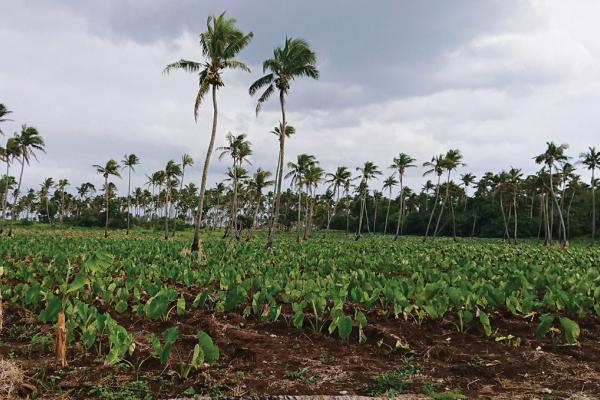Overview
This project aimed to undertake a targeted assessment to explore opportunities for the implementation of conservation agriculture and sustainable intensification of smallholder farming systems as a transformational adaptation to climate change in selected countries of the Pacific.
The core issue addressed in this project is the urgent need to enhance the productivity, sustainability and resilience of agri-food systems in Pacific Island countries in the context of climate change, at the same time as assessing greenhouse gas emissions from the sector and developing practical options for reduction that could result in emissions credits.
The climate challenges differ markedly between the countries in the region and between the main agri-food systems they rely on. Following an initial typology of the most important systems in the targeted countries – Samoa and Tonga – taking into account - enterprise type; opportunities for multiple benefits through green house gas reductions; and exposure to climate change risk, the scope of the work has been planned to initially target two major agri-food systems as a proof of concept. A clear justification will be developed for the choice of the two systems.
Project outcomes
- Assessed the climate risks to future productivity and profitability of agri-food systems, including risks from changes in the intensity and frequency of extreme events.
- Produced a typology of agri-food systems based on the assessments of above of climate opportunities and risks, and the relevance to these systems of conservation agriculture based sustainable intensification.
- Assessed two critical local agri-food farm systems with regard to their current productivity and potential to respond to climate change, from both mitigation and adaptation perspectives.
- Identified and prioritised the male and female farmer/industry needs in relation to these food systems in the context of climate change response, with particular reference to social and gender issues.
- Targeted the options to improve agri-food/farm systems for productivity and profitability that would also enhance capacities to reduce emissions and adapt to climate change risks.
- Assessed the overall potential to reduce greenhouse gas emissions.




